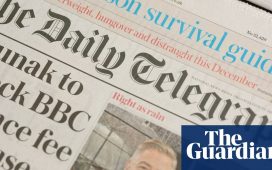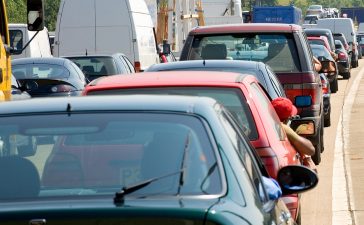Close to 900,000 pensioners will be pulled into paying tax for the first time this year, according to the Department for Work and Pensions (DWP).
The grab follows a decision to freeze the income people can receive each year before they start paying tax at £12,570.
The freeze was introduced by Rishi Sunak when he was the Chancellor in 2021 and extended through to 2027-28 by his successor Jeremy Hunt.
Labour has indicated that it will continue the freeze on the tax allowance and other tax thresholds in a move that will raise billions from Britons, including pensioners.
The state pension is due to rise to around £12,000 in April next year, consequently even a small income from other sources, such as a private pension, will push hundreds of thousands of elderly people over the £12,570 threshold at which they will have to pay tax.
The DWP has disclosed that nearly 12.7 million people across Great Britain are currently of State Pension age.
Adam Pope, a retirement expert from Spencer Churchill Claims Advice, predicts close to two million of these will feel the financial impact of the Personal Allowance freeze within the next four years.
Out of this total number, around 8.1 million (64 percent) are paying tax in retirement, mainly due to extra income from workplace or private pensions on top of their State Pension. And it is estimated that almost 900,000 more individuals will join them this year alone.
Mr Pope said: “Freezing income tax thresholds for pensioners is worrying and could really affect their financial situation.
“Almost two million pensioners are expected to be hit by this in the next four years, meaning many of them will have to pay more tax.”
He highlighted the particular vulnerability of those who rely mainly on the State Pension, cautioning that without adjustments to tax thresholds, unexpected tax demands could pose serious challenges for elderly individuals with limited means.
He also underscored the potential consequences of unchanging tax thresholds amidst increasing pensions.
“As the State Pension amount goes up, more pensioners could have to pay more tax, making life harder for those already struggling. Over 60 percent of pensioners are paying income tax, up from about 50 percent in 2010,” he said.
“What’s more, keeping income tax thresholds the same could mean pensioners have less money to spend. By 2027/28, the average tax-paying pensioner could be £1,000 worse off which could really affect their living standards and financial safety.”
He also commented on the tendency of recent policy changes to overlook the needs of retirees, highlighting that while the Conservatives have cut National Insurance contributions for working individuals, this tax isn’t applicable to those in retirement who often go unnoticed.
He said: “It’s important for those making policies to think about the needs of pensioners too, especially those who can’t earn more money.
“Given all this, it’s clear that we need to look again at how income tax policies affect pensioners and find ways to protect their money.
“Listening to what pension experts and groups fighting for pensioners say is key to making sure the tax system is fair for everyone, including those living on a fixed income.”







